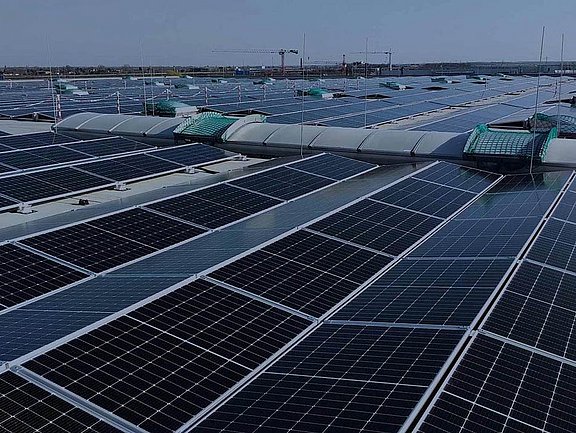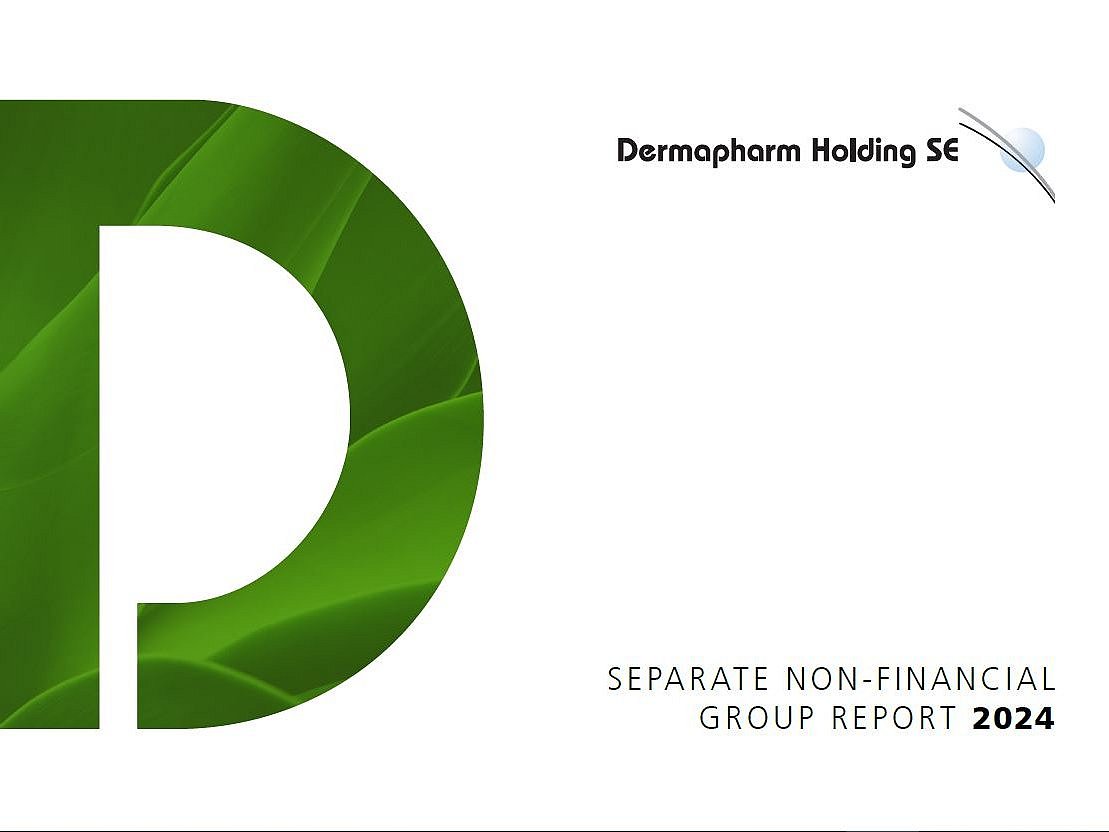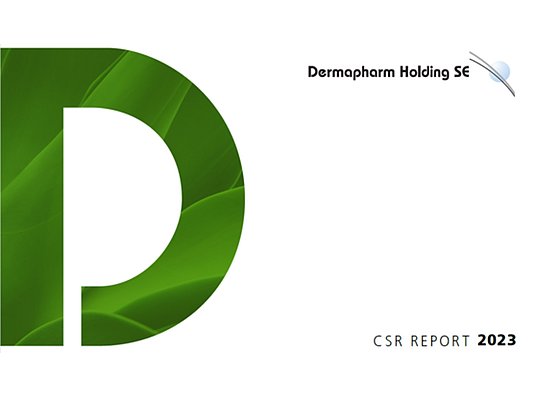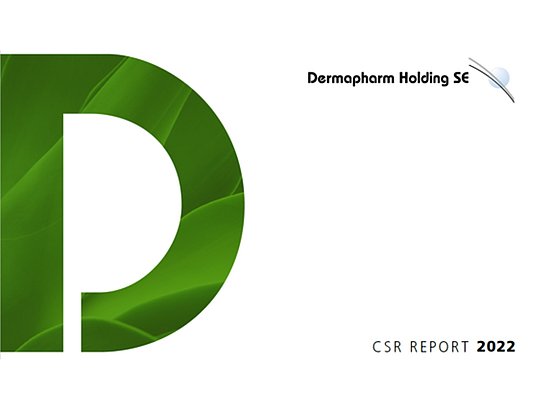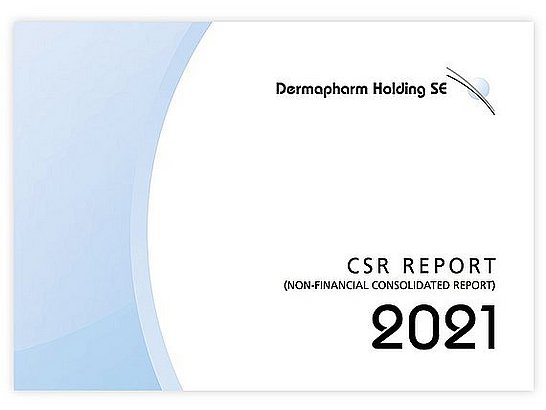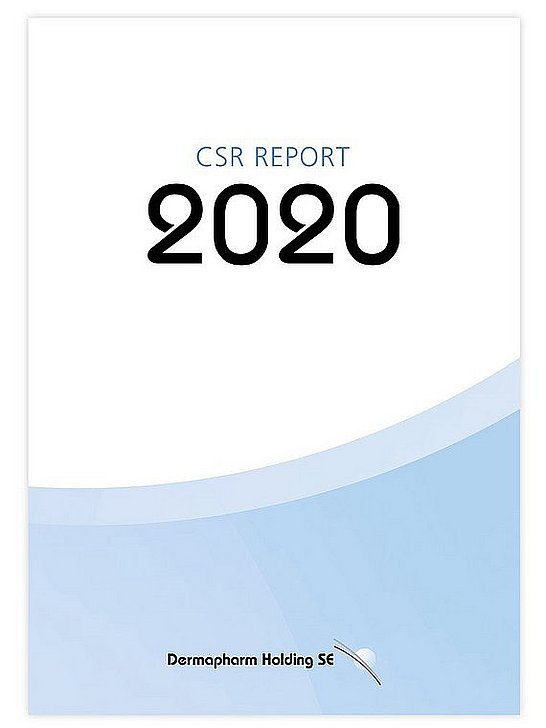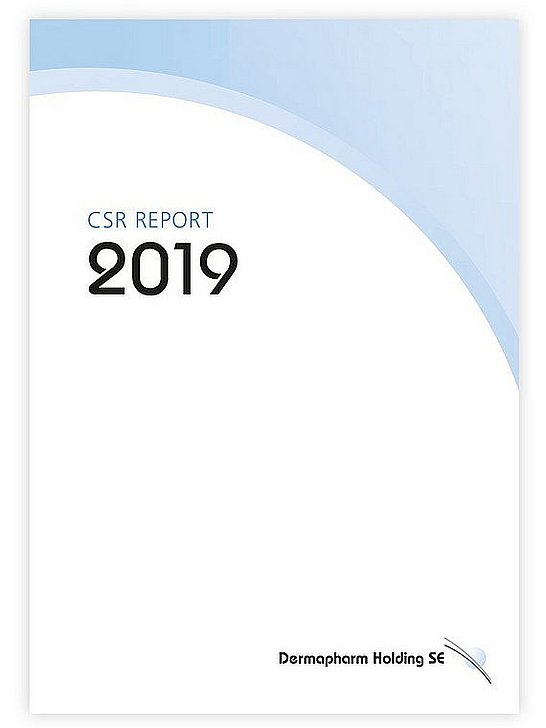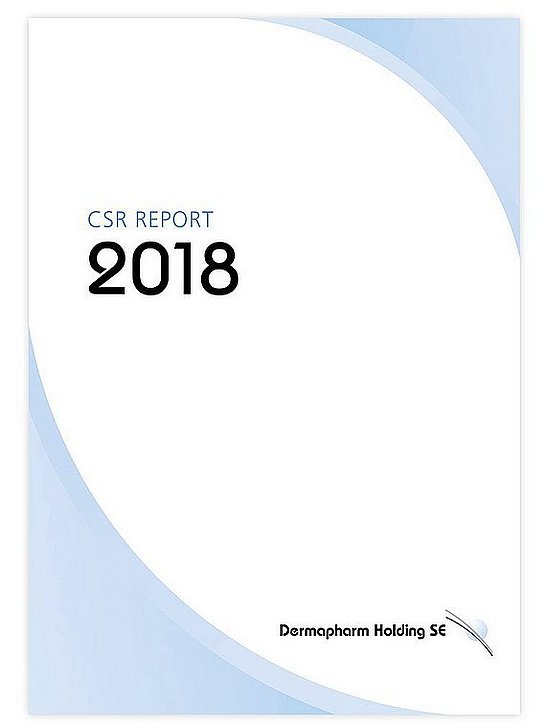Sustainability Reports of the Dermapharm Group
The Sustainability Reports of the Dermapharm Group is addressed to customers, business partners, shareholders, employees and all other stakeholders who are interested in the values and principles of our company. It covers Dermapharm Holding SE and the companies it controls.
Reports on ESG Highlights
-
Energy-Efficient Buildings
Conversion and new buildings for more environmentally friendly production
In Sandersdorf-Brehna, we have a logistics centre that meets the requirements of Good Distribution Practice (GDP), which were adopted by the EU in 2013. The aim of GDP is to ensure high product quality of medicinal products by preventing counterfeiting and manufacturing errors. The new building also fulfils the current energy efficiency criteria for buildings set out in the German Energy Saving Ordinance (EnEV) 2014, including effective thermal insulation, an air-to-water heat pump and active secondary airflow ventilation. In addition, the building was fitted with a green roof for ecological reasons and to improve thermal insulation. Another special energy-related feature was also realised in this third building on the Sandersdorf-Brehna site. Pharmaceuticals must normally be stored at a temperature range of 15-25 °C. As the summer months get hotter and hotter, these storage conditions can only be maintained with extensive cooling from air conditioning systems. At mibe, we achieve optimum thermal insulation by means of a green roof and night-time ventilation. By using large fans, we draw cooled outside air into the warehouses during the night, enabling us to comply with the temperature limits.
One particular highlight for reducing CO2 emissions, for example, was the installation of a solar plant in the first quarter of 2021 with an output capacity of 610,000 kWh. This will cover almost 10% of the current electricity consumption at the Sandersdorf-Brehna site. We also achieved even better insulation of the roof cladding against heat radiation and reduced voltage peaks.
With our new building at our subsidiary axicorp, we have had a state-of-the-art production, warehouse and administration building since 2022, which on the one hand fulfils the current energy standard (EnEV) 2020 and on the other hand has three quarters of the roof area extensively greened. The usable area of over 7,400 m² extends over two floors in the production facility and utilises the latest energy standards. These include a photovoltaic system with a nominal output of 99.18 kWp, a green roof covering 3,600 m² and a ventilation system with heat recovery. In combination with an air-to-water heat pump and a gas condensing boiler, this reduces energy requirements. Fresh water consumption is also reduced by utilising rainwater from the roof surfaces for toilet flushing.
In addition, our subsidiary Melasan in Austria moved into a new administration and production building in 2020, which not only fulfils current energy efficiency standards but also has a rainwater infiltration system to partially offset the sealing of ground surfaces.
We also fulfil strict environmental protection requirements at all other production sites and are constantly adapting to new regulatory requirements. Our production sites are located in designated industrial and commercial areas. Before we acquire a company and thus take over its sites, we analyse the environmental risks in a due diligence process. Since 2015, all of our factories have been certified by an accredited engineering firm through an energy audit in accordance with DIN EN1642.
-
Use of raw materials
Resource Management at Euromed
Euromed, our Spanish subsidiary and manufacturer of herbal pharmaceuticals, has committed to supporting sustainable agriculture. As such, stringent quality control from raw material to waste disposal is of key importance for Euromed. Its main production facility in Barcelona, which processes more than 5,000 tonnes of biomass into herbal extracts each year, has obtained multiple production certifications including ISO 14001 for ecological sustainability. Among other things, the organic waste generated during production is passed on to companies that generate environmentally friendly energy, is composted, or is used as feed for livestock.
Euromed also focuses on exploiting the full potential of the plants used, for instance its product "Lipidic Sterolic Saw Palmetto Extract" (SPE) which as the name suggests is sourced from saw palmetto. The ripe berries of this wild plant, which is considered endangered, are harvested exclusively in Florida and a small part of Georgia, USA. Euromed operates its own facility close to Lake Okeechobee in Florida so that it can rapidly dry and process the harvested berries. This ensures that they have an optimal fatty acid content and means that the raw material is fully traceable. The residue remaining after fruit extraction is used for recycling products such as natural dyes.
